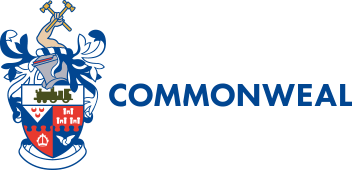
Maths
Head of Subject
Mrs L Taylor
Head of Mathematics
ltaylor@commonweal.co.uk
Overview
Mathematics contributes to the school curriculum by developing pupils’ abilities to calculate; to reason logically, algebraically, and geometrically; to solve problems and to handle data. Mathematics is important for pupils in many other areas of study, particularly Science and Technology. It is also important in everyday living, in many forms of employment, and in public decision-making. As a subject in its own right, Mathematics presents frequent opportunities for creativity, and can stimulate moments of pleasure and wonder when a problem is solved for the first time, or a more elegant solution to a problem is discovered, or when hidden connections suddenly manifest.
It enables pupils to build a secure framework of mathematical reasoning, which they can use and apply with confidence. The power of mathematical reasoning lies in its use of precise and concise forms of language, symbolism and representation to reveal and explore general relationships. These mathematical forms are widely used for modelling situations; a trend accelerated by computational technologies.
Top Tips to do well in Maths
-
Practise, practise, practise.
I always think of maths as a practical subject, you need to ‘do’ maths in order to improve.
-
Be prepared.
Both in terms of physical equipment but also mentally in order to learn.
-
Read the question.
One of the key skills in maths is making sure you answer the question that is asked rather than the question you think is being asked. Check the question for key words, key pieces of information and clues on what to do.
-
Embrace your mistakes.
We all make mistakes, but the best learners look at what the mistakes are and how to improve for next time. It is very difficult to make progress without making mistakes.
-
Believe in the power of ‘yet’.
Coupled with a growth mindset, it is really important to believe that with effort and resilience you will improve. Rather than saying “I don’t get it” you need to say “I don’t get it yet.”
The Curriculum
KS3:
KS3 students will have 7 hours a fortnight in maths.
Classes are grouped according to ability but are reviewed on a regular basis and consistent low-stakes testing enables us to make changes quickly and effectively.
We follow the White Rose scheme of work which is similar to what many of our feeder primaries use and allows consistency and smooth transition both in terms of what we cover but also the way it is delivered.
Within a year group each class will be studying the same, or very similar, units of work albeit at different depth dependant on what is suitable to the group.
Each class follows a programme of topics covering the Key Stage 3 Programme of Study. This covers
- Number
- Ratio, proportion and Rates of Change
- Algebra
- Geometry and Measures
- Statistics
Ks4:
Students will have 8 hours a fortnight in both year 10 and 11.
We follow the Edexcel 2 year scheme of work which is inline with the exam board we use in the GCSE’s. Each block of work is delivered in a set number of lessons which allows us to both push and challenge but also support and assist students as required. This is similar to the way they are taught in KS3 and ensures consistency across key stages.
Students are entered either for Foundation or Higher tier with the final decision being made around the Easter of Year 11. Although this is often a straightforward decision sometimes it requires additional exam board led diagnostic testing.
Again the GCSE course covers a wide range of topics from;
- Number
- Ratio, proportion and Rates of Change
- Algebra
- Geometry and Measures
- Statistics
Independent learning
Mathematics covers a wide range of topics and skills. As we move through the units and block in all key stages we work hard with students to develop mastery of all topics.
There will be times where students require a little extra practice, or perhaps where they want to learn more. In these cases we will always encourage them, and give them the opportunity to do so through additional work either in class or at home using Hegarty maths.
Regular homework is also important as it allows students develop their ability to work independently. It is also key in showing us what they can do, but also perhaps more importantly what they struggle on. This gives us the opportunity to fill knowledge gaps where required.
Enrichment and trip possibilities
- UK Maths Challenge
- Techniquest trip (Y8)
Curriculum Maps
Maths - Curriculum Map
245.21 KB – Updated November 26, 2021